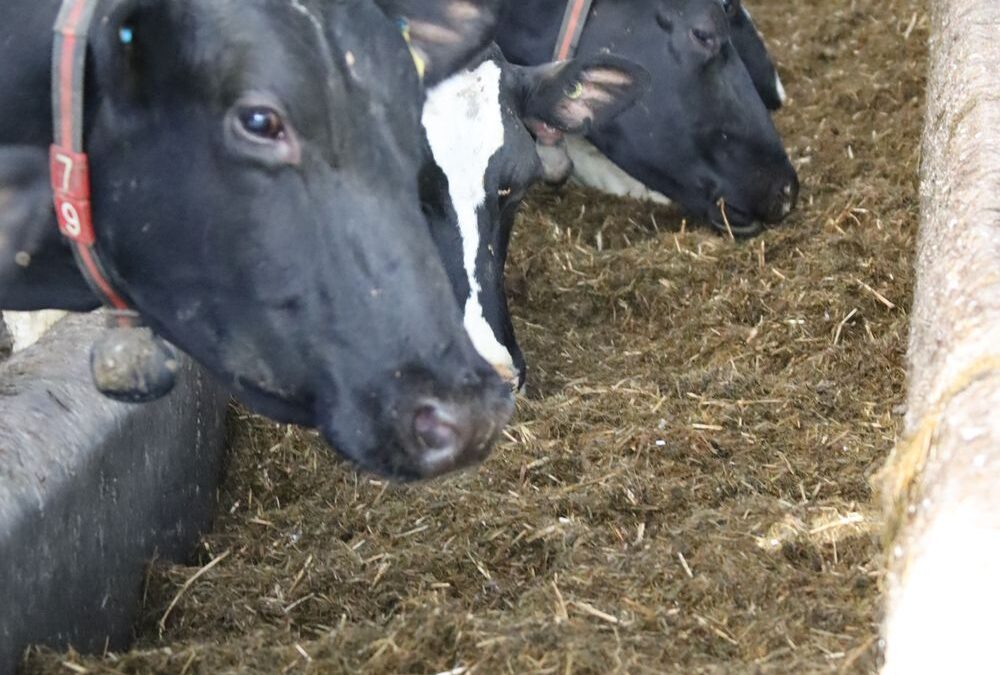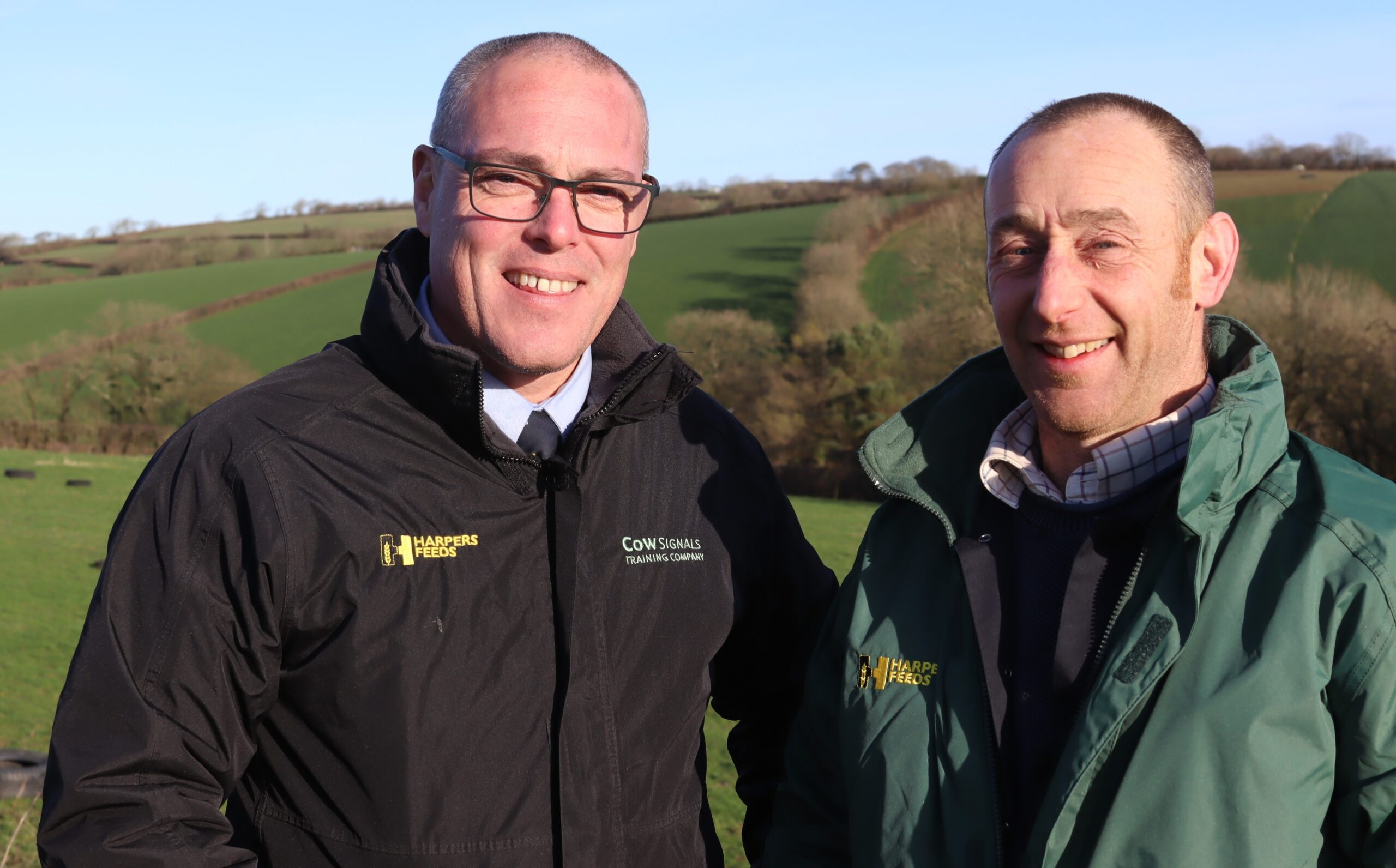By changing to Harpers Planet Dairy products, Andrew Griffin has successfully cut 75 tonnes of soya from his diets, slashing emissions from his 150 cow all-year -round calving Holstein herd. And the cows have continued to perform as well as before.
Lower Wheatley Farm near Launceston is a real family concern with three generations working with the herd. Andrew runs the farm with his parents Ray and Val with help from Andrew’s partner Charlotte and now his children Jazz and Jack are enjoying being involved with the farm.
The 252-acre farm is mainly down to grass with around 50 acres of wheat providing crimp for the cows. Grass silage is the only forage made with three cuts taken with the aim of producing a high quality, high protein feed.
In June 2020, the family made the decision to invest in two robots and to refine the system. Cows no longer graze, instead being fed a mix of zero-grazed grass and silage in the summer supplemented with a protein blend and crimped wheat.
The zero-grazed grass is fed usually from March until mid-October. In the winter the cows were fed a TMR comprising of grass silage, home-grown crimped wheat, molasses and soya. Dairy compound is fed through the robots.
Performance has increased significantly since the move to robots with yield increasing from 8500 litres sold to 10680 litres with the herd on target to produce 11400 litres at a feed rate of 0.33kg/l. Milk quality has been good at 4.35% fat and 3.35% protein.
Being an Arla supplier, Andrew is reviewing the system to identify the most effective ways to gain as many sustainability points as possible to improve his milk price.
While the scheme identifies numerous areas where action will have a positive impact on sustainability and be eligible for points including feed efficiency, land use and fertiliser efficiency, Andrew wanted to focus on sustainable feed, particularly removing soya. In October 2022 with the help of Richard Waters, Ruminant Nutritionist and Technical Development Manager with Harpers Feeds he made the decision to switch to Harpers Planet feeds.
The Planet range of dairy compounds and blends contain zero soya products and palm kernel. These have been replaced with proven ingredients with a lesser impact on the environment including protected rapeseed, beans, maize distillers, rapeseed, sugar beet pulp and wheatfeed.
The 17% Harpers Glycogenic compound was replaced with Harpers Planet 17%. The 800g/cow/day of soya in the TMR was replaced with Planet Nova 40, a 40% protein blend.
Andrew was concerned about how cows would perform when the change was made, but the cows have continued to milk as well with no change to yields or quality. Fertility has remained good with 45% conception to first service and a predicted calving index of 387 days.
The cows have remained very settled with good lying times, dung has been very consistent and they have a healthy shine to their coats.
By balancing the proteins in the diet, it has been possible to remove soya without affecting the cows at all. While performance has remained unchanged Andrew has saved 75 tonnes of soya which has had a significant impact on herd emissions.
For more information on our Planet range, contact your local Feed Specialist







